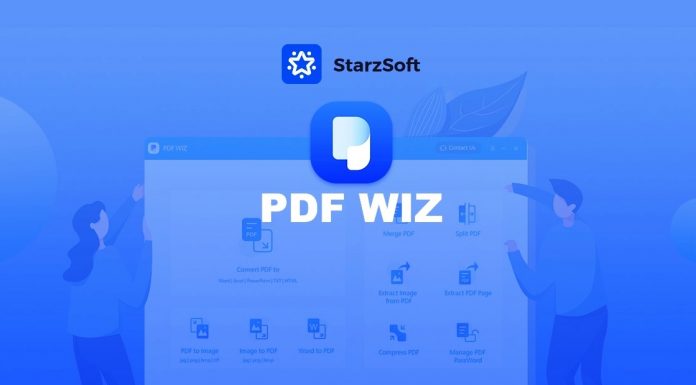In the fast-changing business environment, small businesses are always looking for new ways to boost their competitiveness and growth. Artificial Intelligence (AI) stands out as a game-changer in this context. It’s not just for big corporations anymore; businesses of all sizes can now tap into its benefits. This article discusses six practical ways small businesses can leverage AI to fuel their growth. Through the integration of AI across different operational areas, small businesses can enhance efficiency, obtain valuable insights, improve customer experience, and stay competitive in the market. Let’s delve into these transformative strategies.
1. Enhancing Customer Experience With Chatbots
Improving customer experience is a key element of business growth, especially for small enterprises aiming to establish a solid market presence. AI chatbots play a crucial role in this. These intelligent assistants can engage with customers 24/7, providing instant responses to queries and support requests. This level of availability and efficiency is particularly helpful for small businesses that may lack the resources for a large customer service team.
AI chatbots aren’t just about handling basic inquiries. They are becoming increasingly sophisticated, capable of understanding and responding to complex customer needs, and even personalizing interactions based on past experiences. This creates a more engaging and satisfying customer experience, as clients feel heard and valued. Furthermore, the integration of AI in business operations, particularly in customer service, represents a significant step toward digital transformation, aligning small businesses with current technological trends. By leveraging AI chatbots, small businesses can significantly improve customer satisfaction, leading to increased loyalty and potentially higher sales. The smart use of AI in customer interactions not only positions a business as tech-savvy but also demonstrates a commitment to customer-centric service, an essential factor in business growth.
2. Predictive Data for Better Decision Making
Predictive analytics stands as a powerful tool for small businesses, enabling them to make smarter, data-driven decisions. By using AI algorithms to analyze past and current data, predictive analytics can forecast future trends and behaviours. This capability is particularly valuable in areas like market demand, customer purchasing patterns, and inventory management. For example, a small business can employ predictive analytics to understand when certain products are likely to be in high demand, allowing them to adjust their inventory and marketing strategies accordingly. This proactive approach can lead to increased sales and reduced waste, as businesses avoid being stuck with unsold stock.
Moreover, predictive data can assist in identifying potential customer segments and tailoring marketing messages to resonate with those audiences. By understanding customer behaviours and preferences, small businesses can create more effective, targeted marketing campaigns that are more likely to convert leads into sales. Predictive analytics transforms historical and real-time data into actionable insights, enabling small businesses to stay ahead of the curve and make informed decisions that drive growth and efficiency.
3. Streamlining Operations with Automation
Automation, powered by AI, is a valuable tool for small businesses aiming to streamline their operations. This technology takes on repetitive and time-consuming tasks, allowing business owners and their teams to focus on more strategic and value-added activities. For example, AI can automate administrative tasks such as scheduling, email management, and customer data entry. This not only saves time but also reduces the likelihood of human error, increasing overall efficiency. Moreover, automation can extend to aspects like inventory management, where AI systems can track stock levels and automatically reorder supplies when needed. This ensures that businesses never run out of essential items, maintaining smooth operations without manual intervention.
By integrating automation into their daily operations, small businesses can achieve a higher level of productivity and precision. This not only improves the internal working environment but also leads to better customer experiences, as services become more reliable and responsive. In summary, automation is a smart investment for small businesses aiming to optimize their operations and focus on growth.
4. Personalizing Marketing Efforts
Personalizing marketing efforts is a transformative strategy for small businesses, providing a direct path to deeper customer engagement and increased sales. With AI, businesses can sift through extensive customer data to uncover valuable insights about individual preferences and habits. This knowledge empowers businesses to move beyond one-size-fits-all marketing, crafting messages and offers that resonate with specific customer segments.
Imagine a local boutique using AI to analyze purchase history and online browsing patterns. This data can reveal which styles or products certain customers prefer, when they are most likely to shop, and through which channels (like email, social media, or direct mail) they engage most. Tailoring marketing strategies accordingly, the boutique can send personalized product recommendations or exclusive offers at the right time, through the right medium.
This tailored approach in marketing not only boosts the impact of promotional efforts but also builds a stronger, more personal connection with customers. When customers feel a business understands their unique needs and preferences, they’re more likely to remain loyal and make repeat purchases, driving long-term growth for the business.
5. Competitive Insights Through AI-Powered Market Research
Gaining a competitive edge in today’s market is essential for small businesses and AI-powered market research offers a key advantage. This technology enables businesses to analyze large volumes of data from various sources, including social media, industry reports, and customer feedback. By doing so, small businesses can obtain real-time insights into market trends, customer preferences, and competitors’ strategies. For example, an AI system can monitor social media to track how consumers are responding to competitors’ products or marketing campaigns. This information can guide small businesses in refining their own product offerings or marketing strategies to better meet customer needs and preferences. Additionally, AI-driven analysis can reveal gaps in the market that a small business could exploit or emerging trends they can capitalize on.
6. Improving Product or Service Quality with AI-Driven Analytics
Enhancing product or service quality is essential for small businesses aiming to grow and retain their customer base. AI-driven analytics plays a vital role in this aspect, offering insights that guide enhancements in offerings. By analyzing customer feedback, purchase patterns, and usage data, AI tools can identify what customers appreciate most and what areas need improvement. For example, a small cafe can use AI to analyze customer reviews and sales data to determine which menu items are favourites and which are less popular. This information can guide menu adjustments, ensuring the cafe offers what customers truly enjoy. Similarly, a service-based business can analyze client feedback through AI algorithms to identify common pain points, enabling them to refine their service delivery for better client satisfaction.
Wrapping Up…
In summary, integrating AI into small businesses offers a pathway to unparalleled growth. By automating tasks, analyzing customer data, and improving decision-making, AI empowers small enterprises to compete effectively and innovate within their markets. Embracing AI is not just a strategic choice; it’s a necessity for small businesses aiming to thrive in a dynamic business landscape, fostering growth, adaptability, and a culture of continuous improvement.









![[Buy Now] CENAVA F14 Review Notebook Offer Price (Buying Guide) CENAVA F14](https://www.techinpost.com/wp-content/uploads/2017/12/image001-324x235.jpg)




